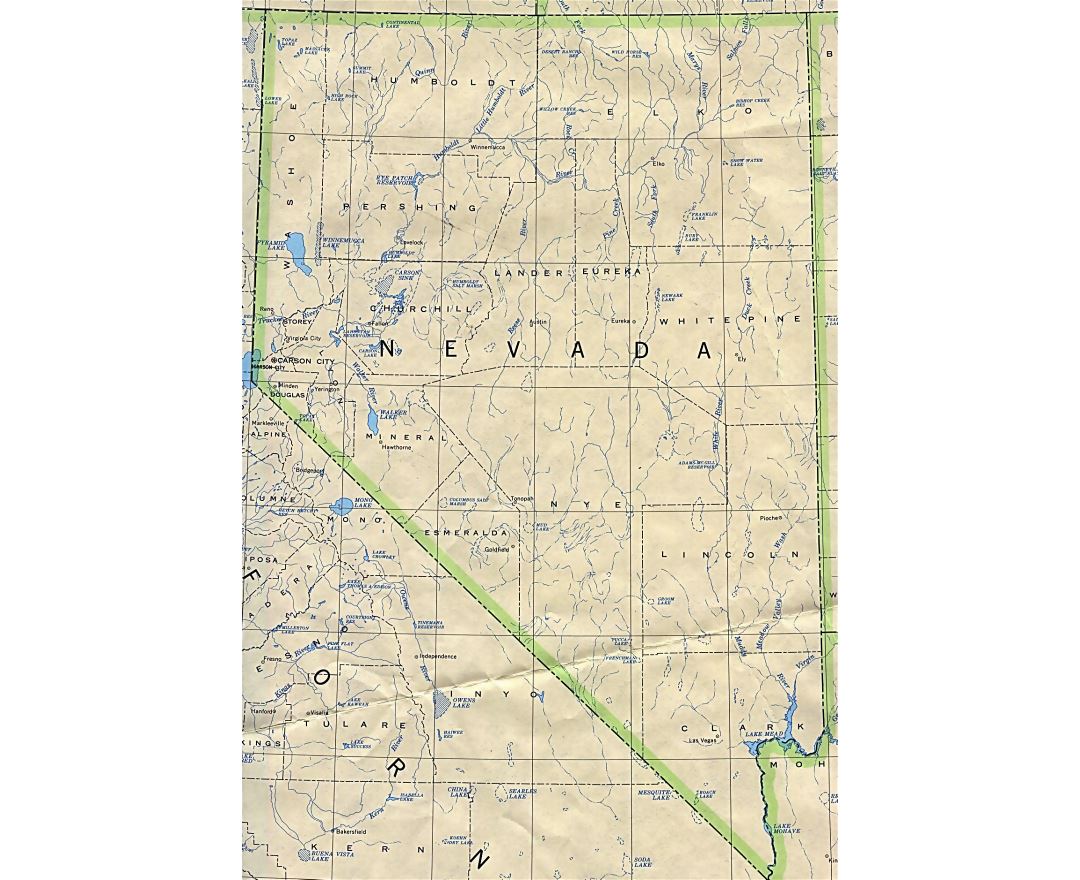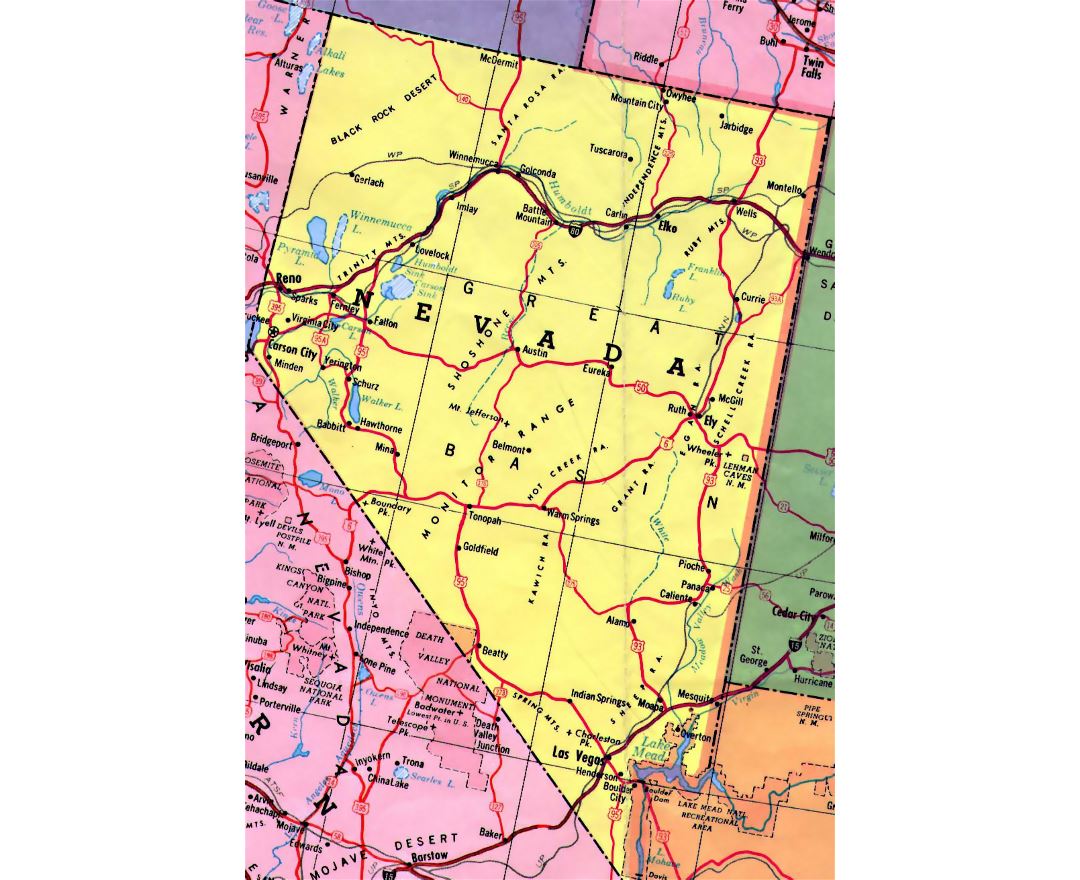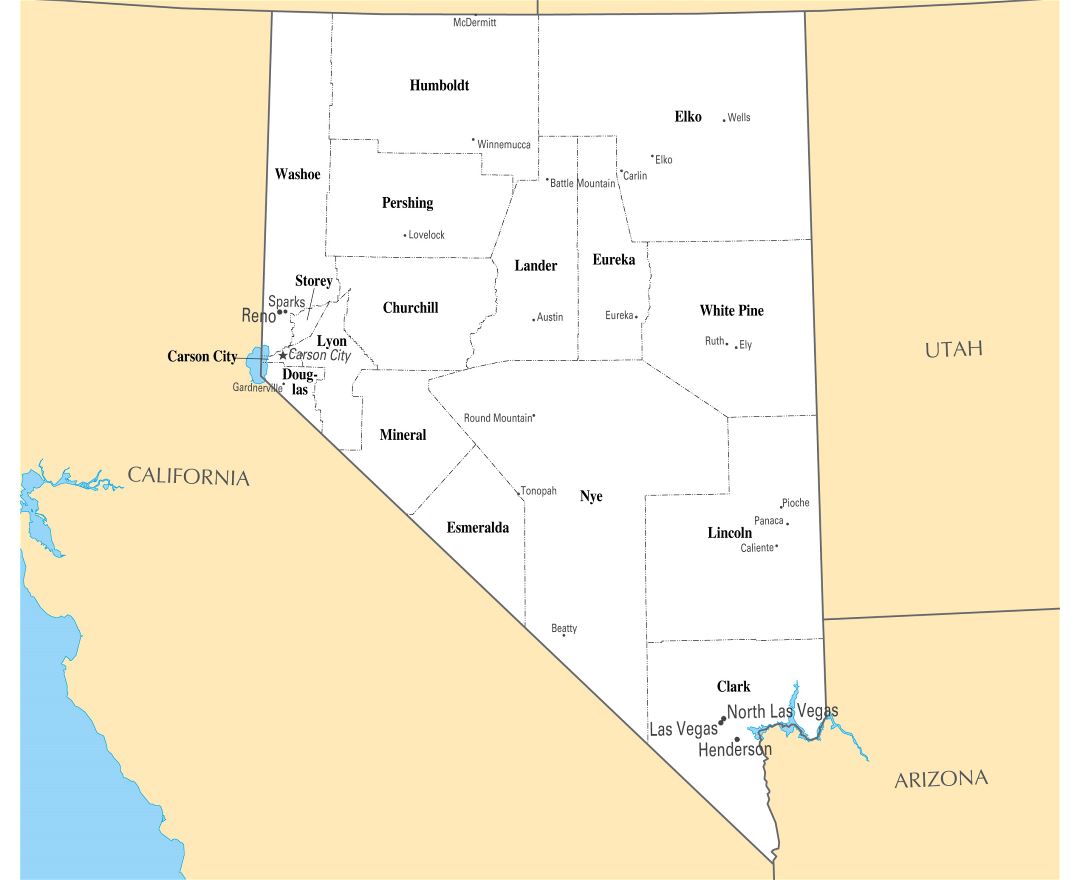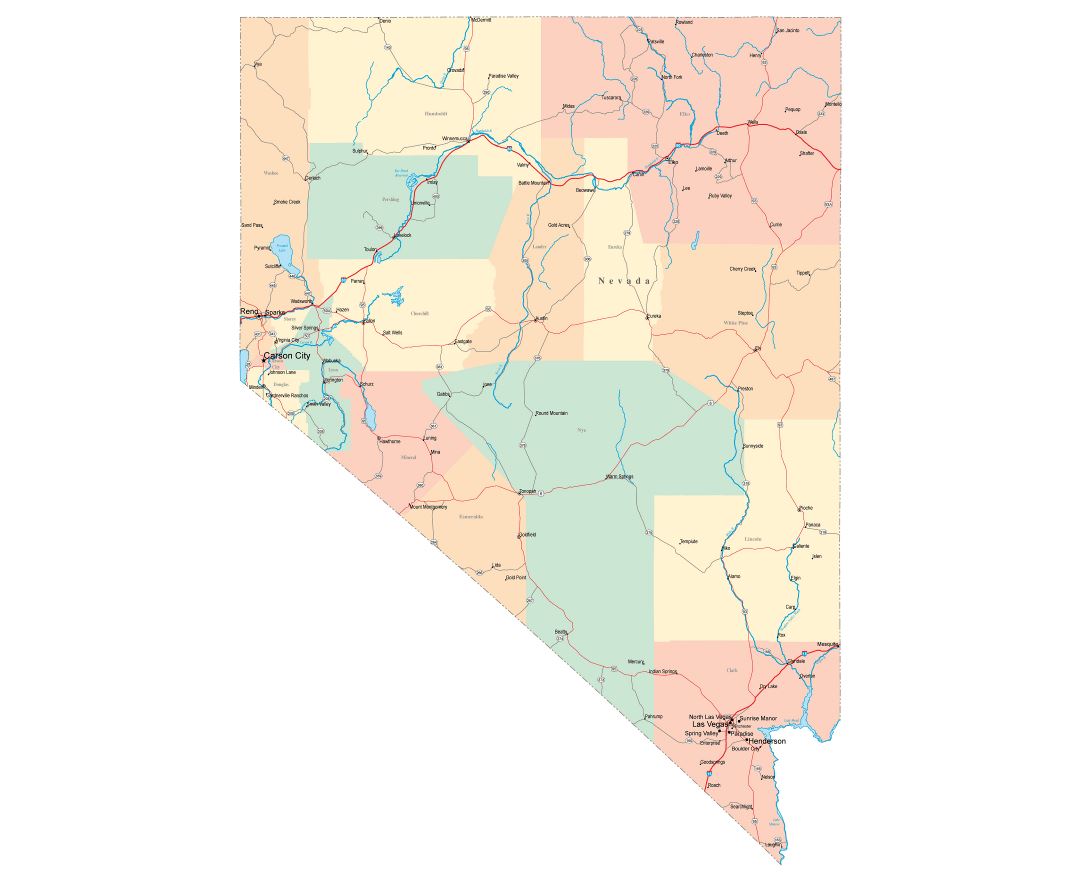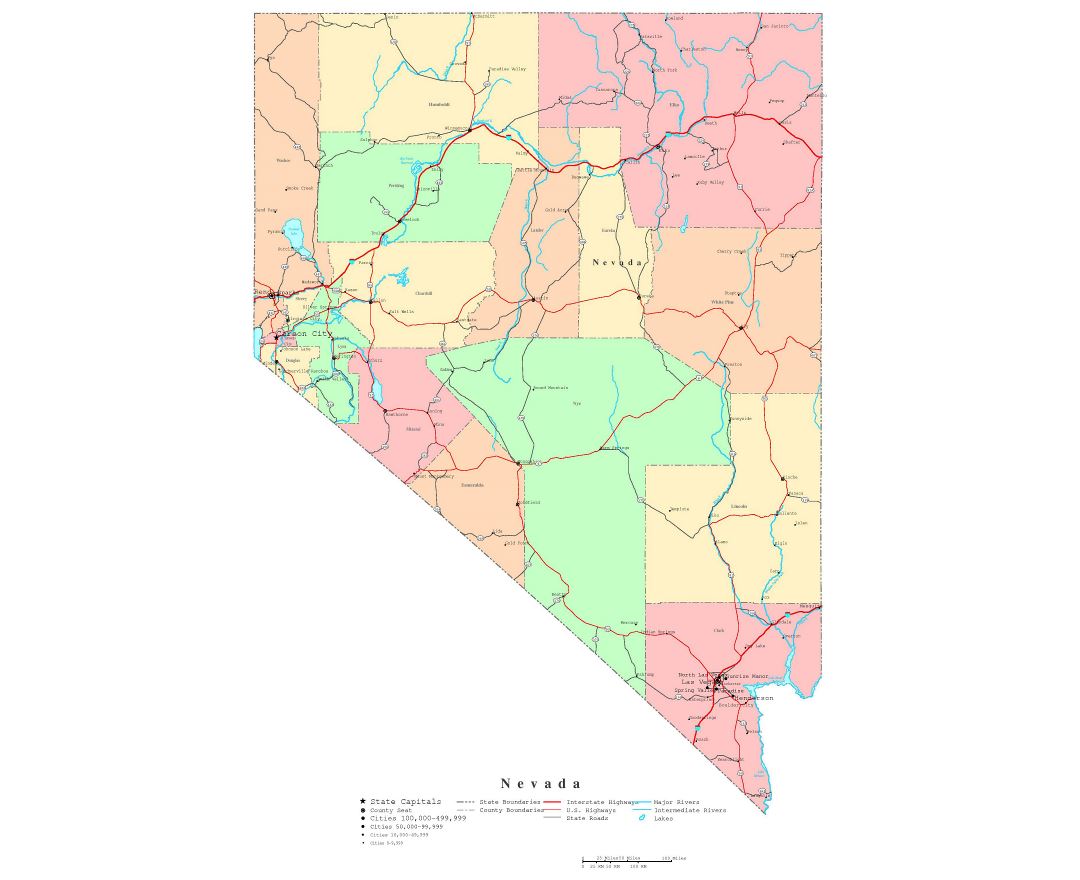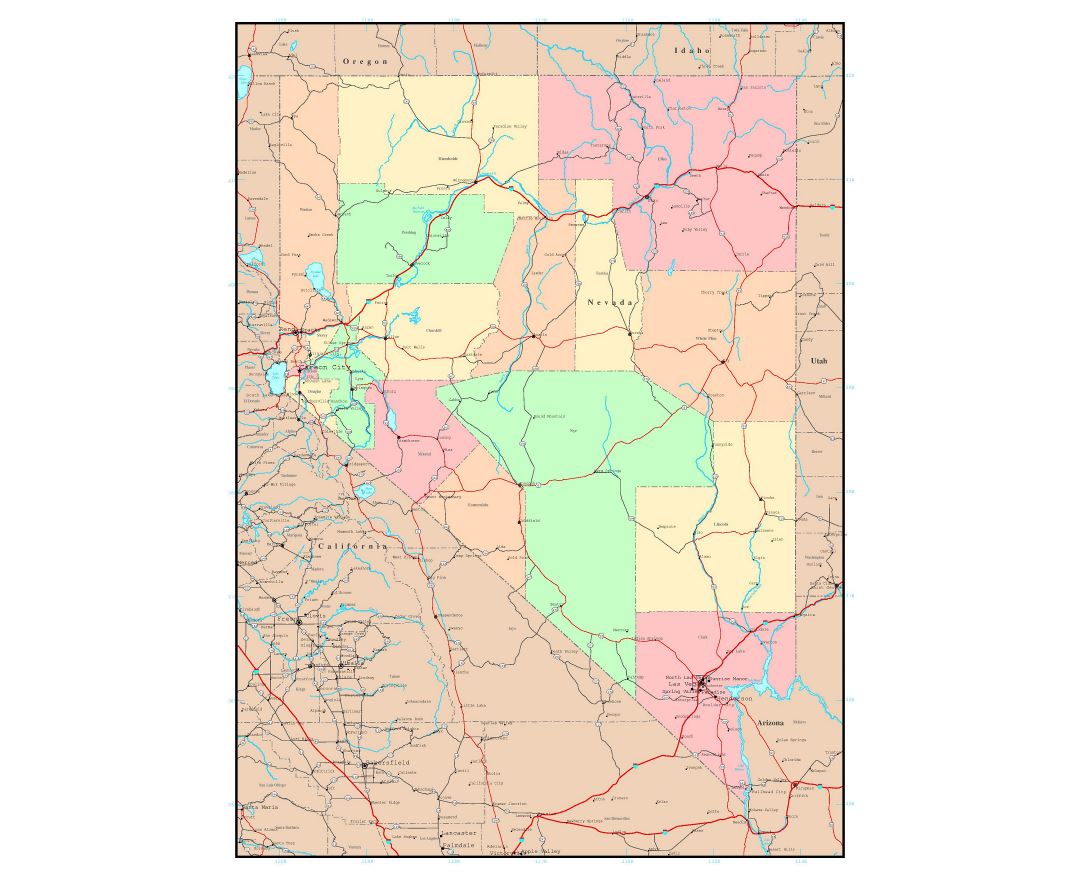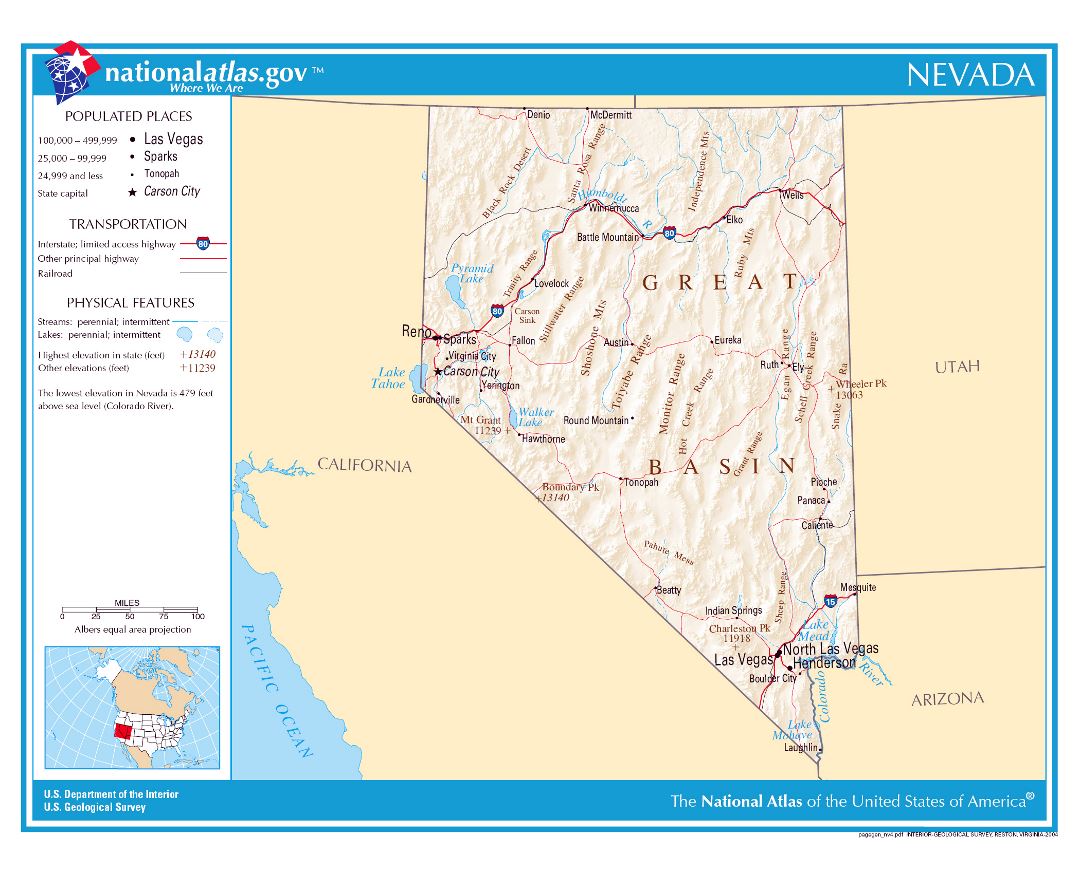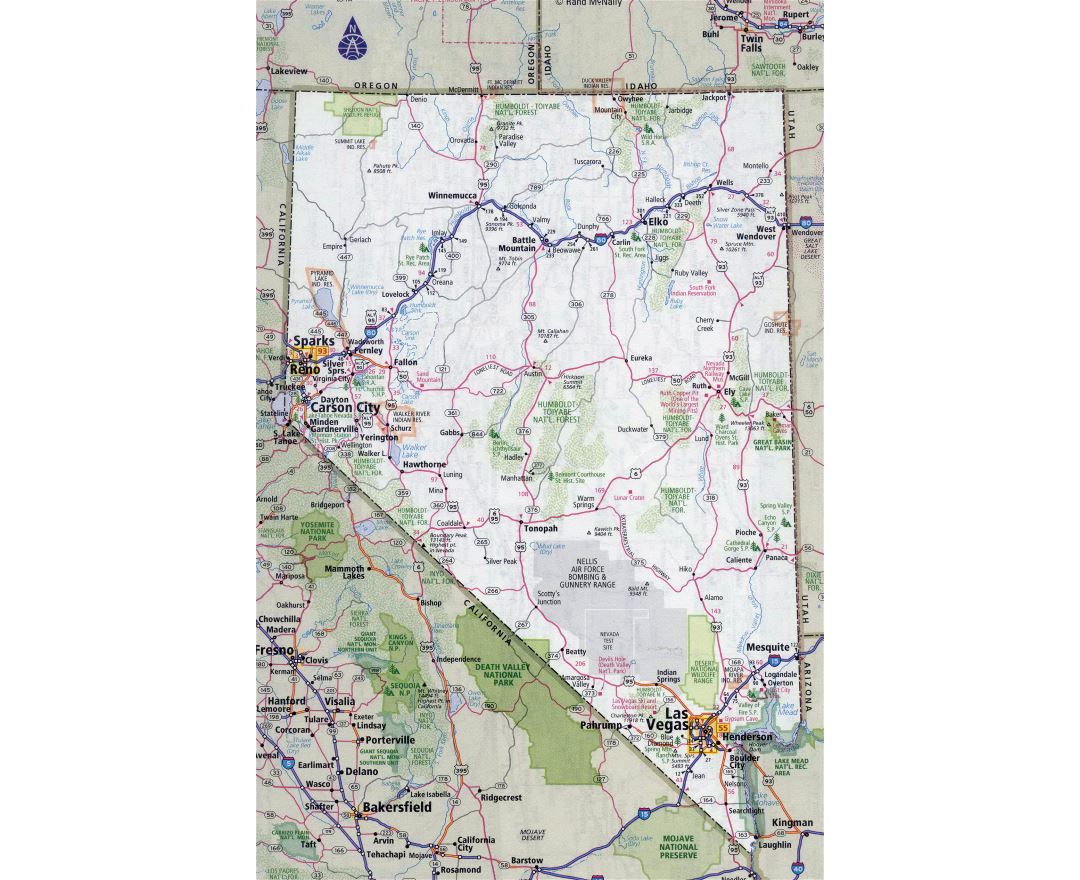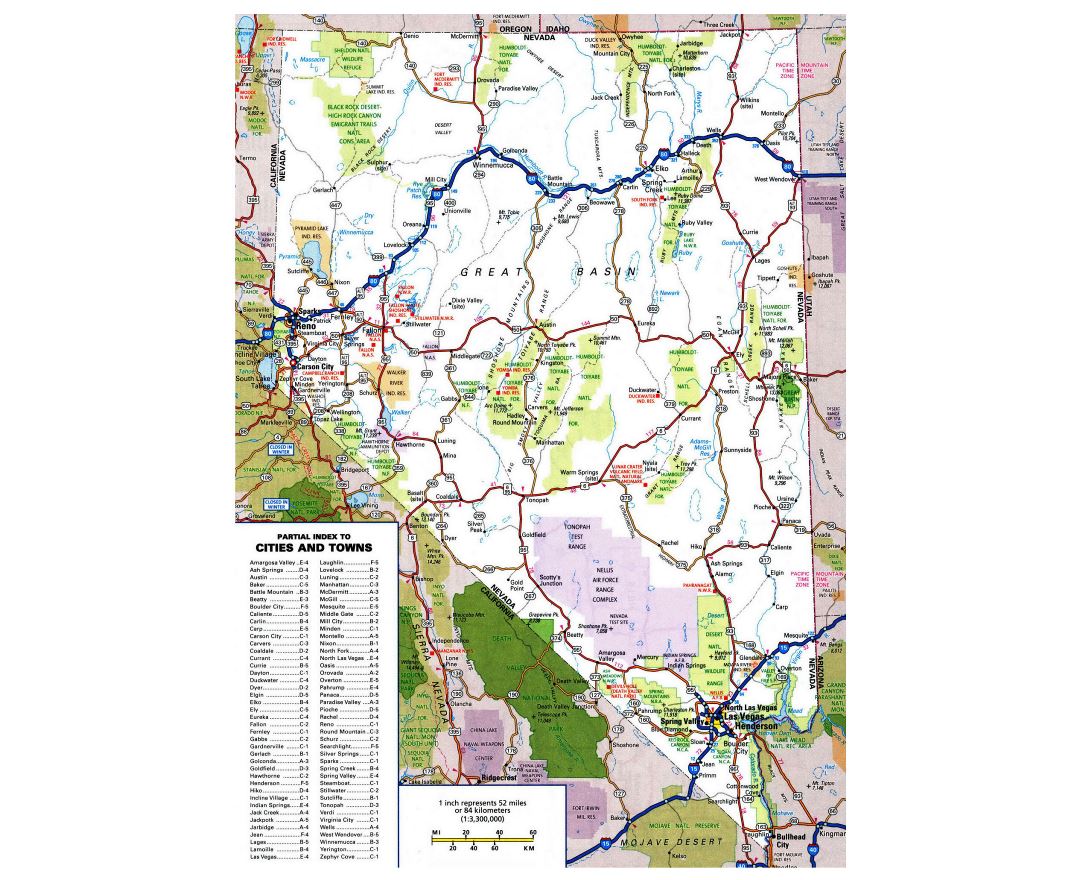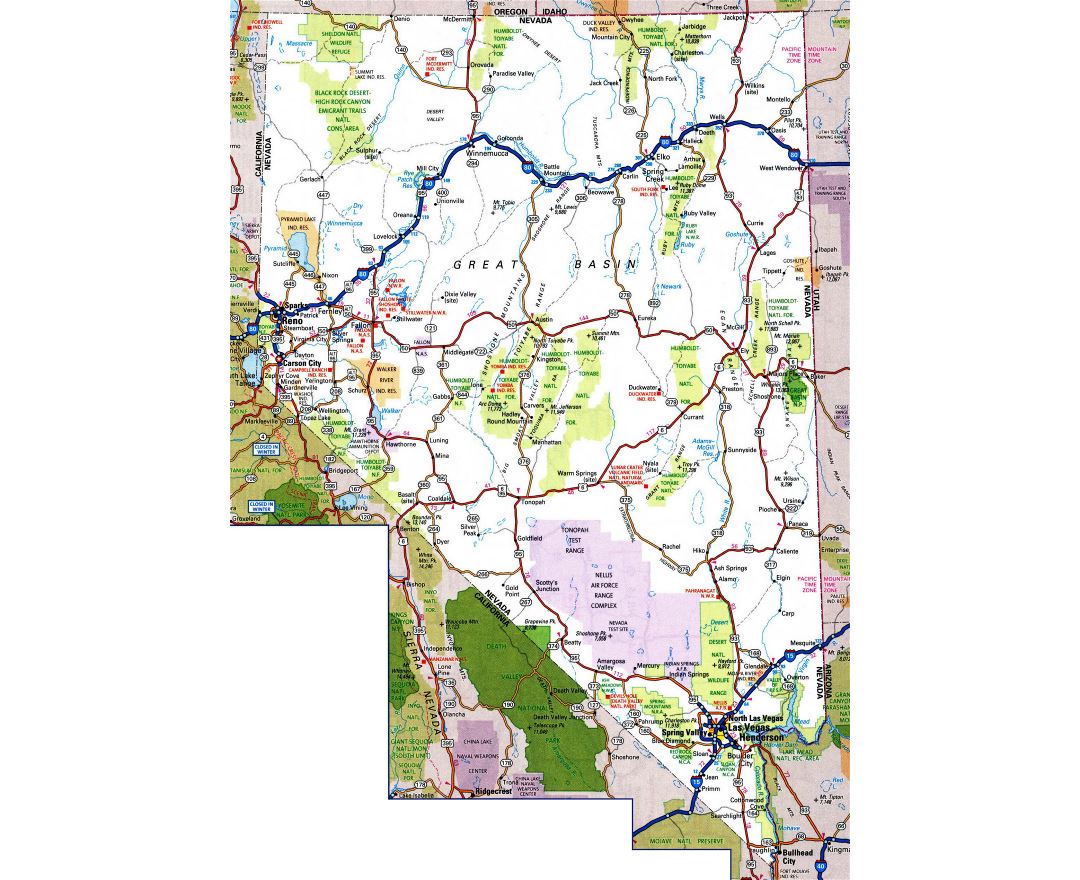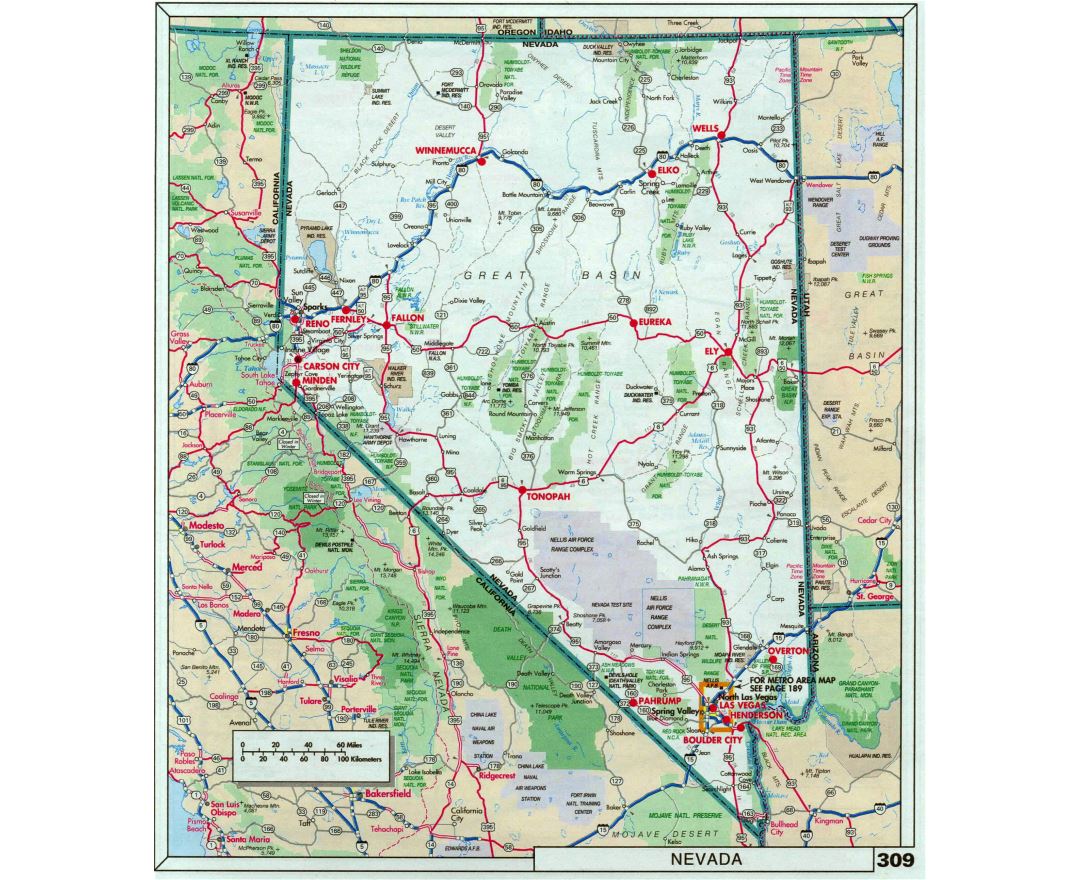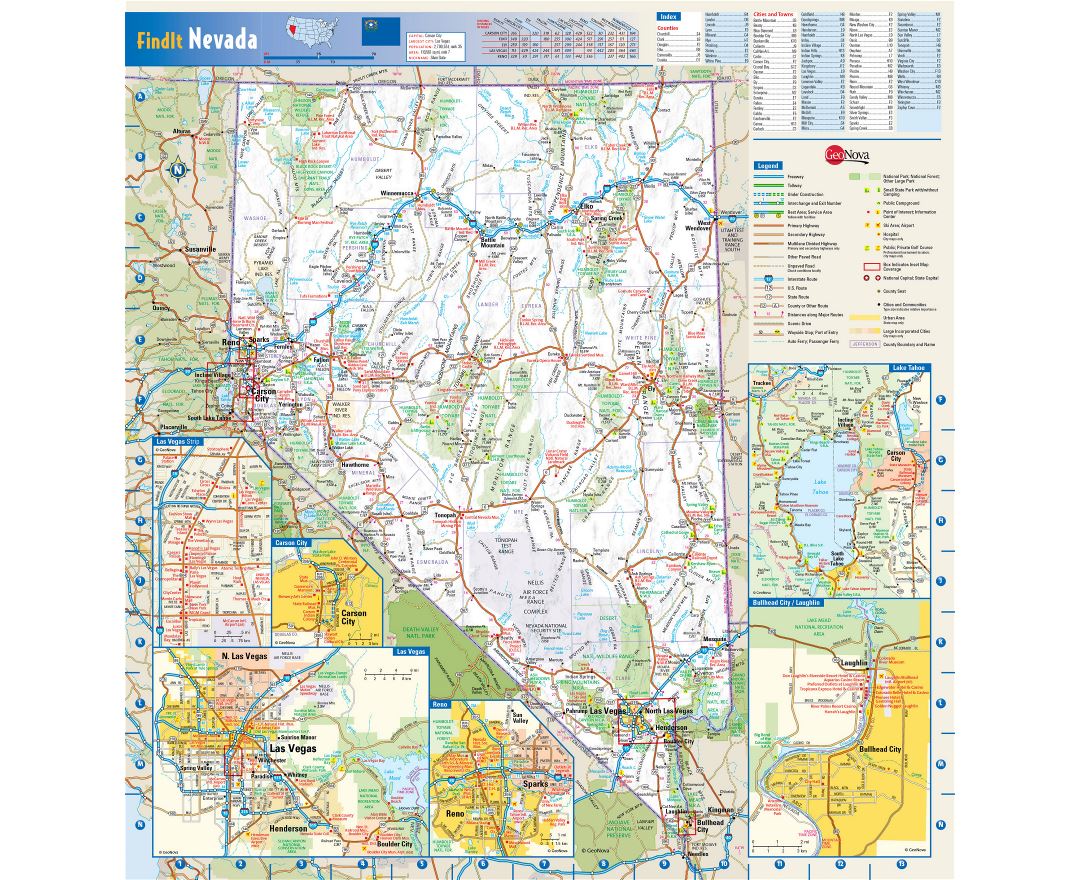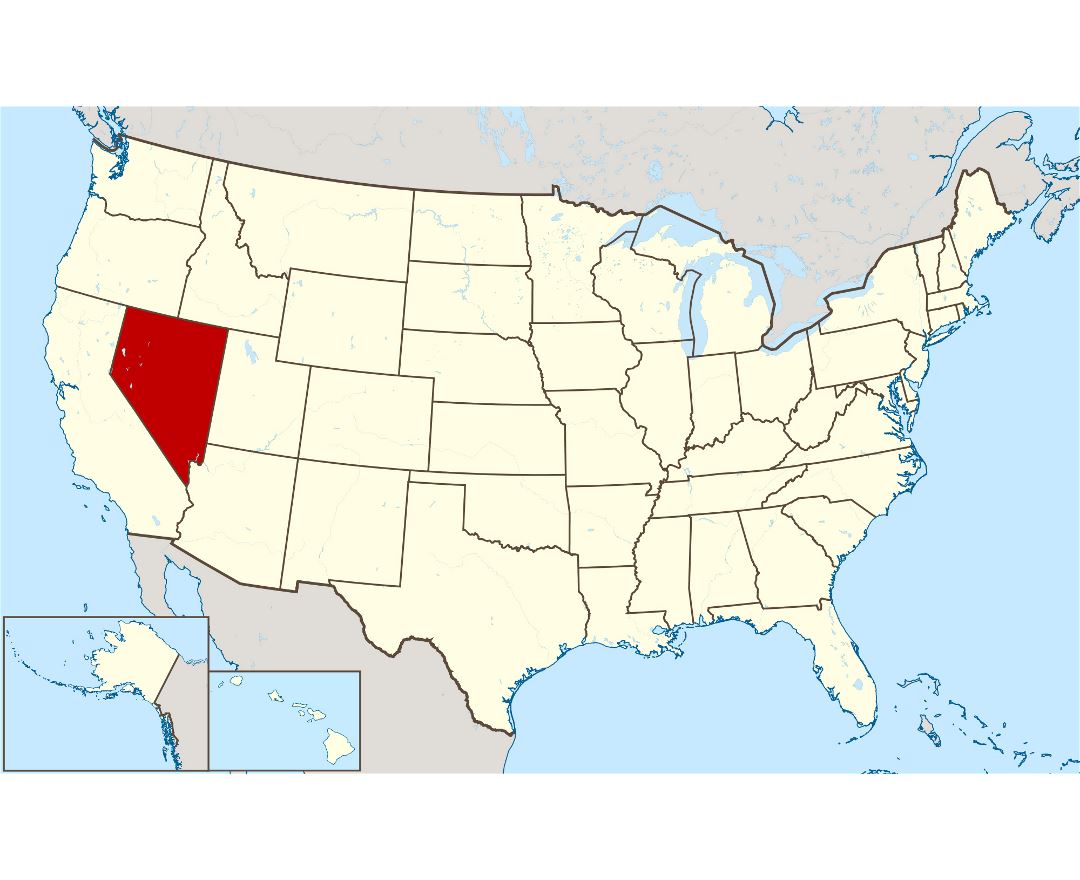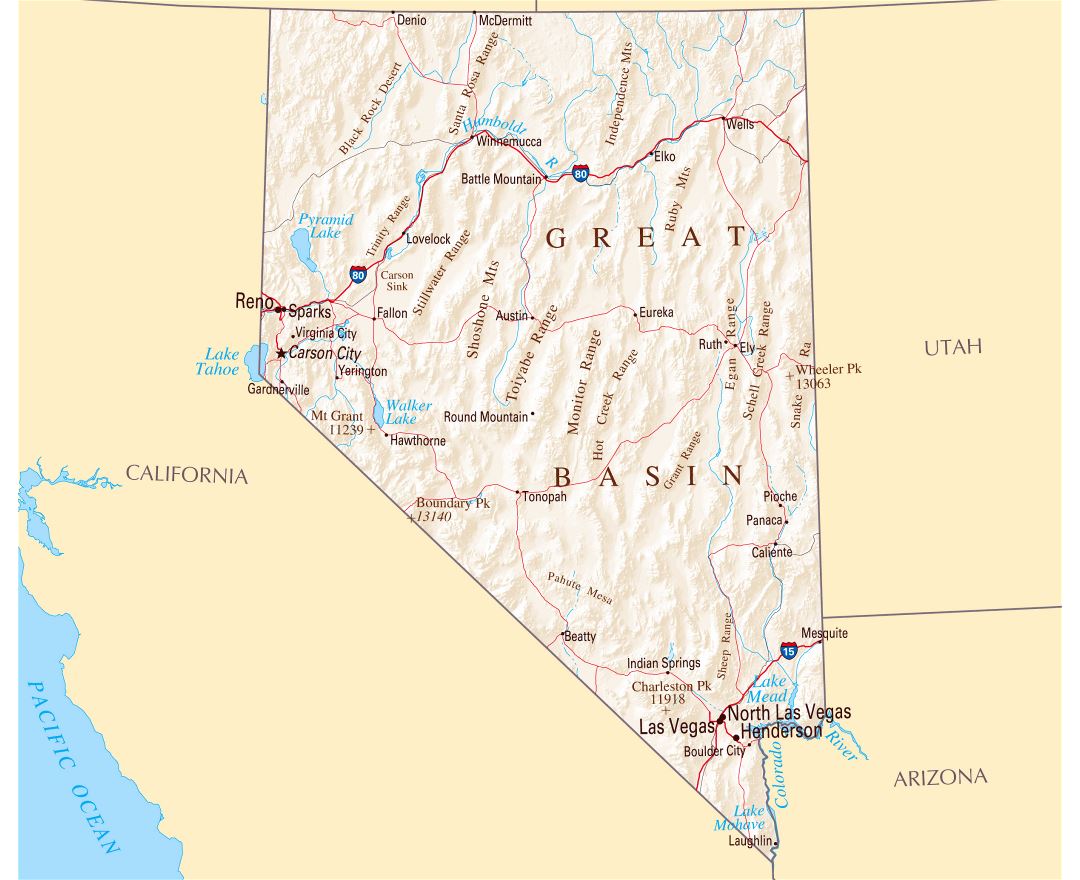Nevada state
Nevada is a state in the Western, Mountain West, and Southwestern regions of the United States of America. Nevada is the 7th most extensive, the 34th most populous, and the 9th least densely populated of the 50 United States. Nearly three-quarters of Nevada's people live in Clark County, which contains the Las Vegas–Paradise metropolitan area where three of the state's four largest incorporated cities are located. Nevada's capital is Carson City. Nevada is officially known as the "Silver State" because of the importance of silver to its history and economy. It is also known as the "Battle Born State", because it achieved statehood during the Civil War (the words "Battle Born" also appear on the state flag), as the "Sage-brush State", for the native plant of the same name; and as the "Sage-hen State". Nevada borders Oregon to the northwest, Idaho to the northeast, California to the west, Arizona to the southeast and Utah to the east.
Nevada is largely desert and semi-arid, much of it located within the Great Basin. Areas south of the Great Basin are located within the Mojave Desert, while Lake Tahoe and the Sierra Nevada lie on the western edge. About 86% of the state's land is managed by various jurisdictions of the U.S. federal government, both civilian and military.
Before European contact, Native Americans of the Paiute, Shoshone, and Washoe tribes inhabited the land that is now Nevada. The first Europeans to explore the region were Spanish. They called the region Nevada (snowy) because of the snow which covered the mountains in winter. The area formed part of the Viceroyalty of New Spain, and became part of Mexico when it gained independence in 1821. The United States annexed the area in 1848 after its victory in the Mexican–American War, and it was incorporated as part of Utah Territory in 1850. The discovery of silver at the Comstock Lode in 1859 led to a population boom that became an impetus to the creation of Nevada Territory out of western Utah Territory in 1861. Nevada became the 36th state on October 31, 1864, as the second of two states added to the Union during the Civil War (the first being West Virginia).
Nevada has a reputation for its libertarian laws. In 1940, with a population of just over 110,000 people, Nevada was by far the least-populated state, with less than half the population of the next least-populated state. However, legalized gambling and lenient marriage and divorce laws transformed Nevada into a major tourist destination in the 20th century. Nevada is the only U.S. state where prostitution is legal, though it is illegal in Clark County (Las Vegas), Washoe County (Reno) and Carson City (which, as an independent city, is not within the boundaries of any county). The tourism industry remains Nevada's largest employer, with mining continuing as a substantial sector of the economy: Nevada is the fourth-largest producer of gold in the world.

